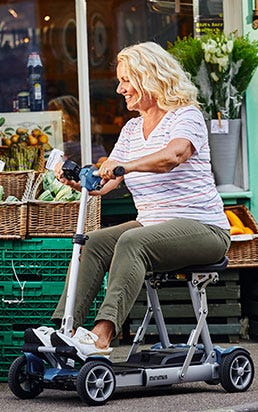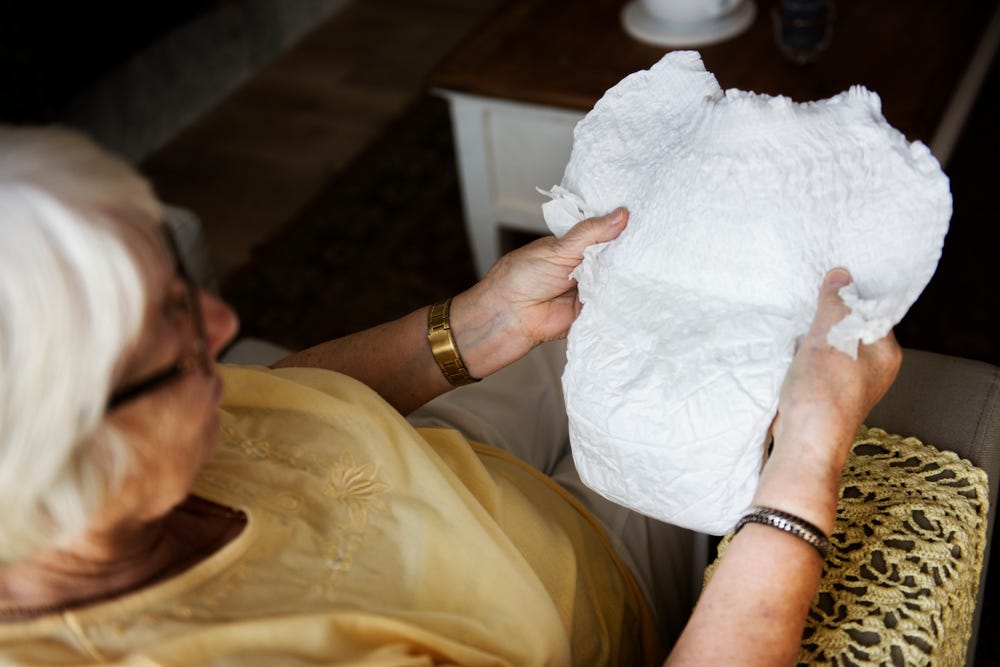When we talk about incontinence it is often assumed that urinary incontinence is the only problem, but the truth is, faecal incontinence (also called bowel incontinence) is the bigger problem - it is one of the most common reasons a person starts to need permanent care. Faecal incontinence is when a person can no longer control their bowel movements, and are prone to regular accidents. For many people it is far more embarrassing than urinary incontinence, and is often a reason why a person will stop going out in public, and can ultimately lead to isolation, loneliness and depression.
Do You Have Faecal Incontinence?
If you have any of the following problems, you may have faecal incontinence:
- A sudden urge to go to the toilet
- Soiling yourself without realising you needed the toilet
- Leaking some poo, maybe when passing wind
- It happens on a regular basis (not just when unwell)
Anybody who develops any of these symptoms should speak with their GP, whatever their age. Associated problems include constipation, diarrhoea, more than usual wind or bloating.
What Causes Bowel Incontinence?
Bowel incontinence is caused by various conditions such as constipation, diarrhoea and irritable bowel syndrome (IBS). It can also be caused by severe piles, or by damaged caused during childbirth. Anything that causes nerve damage can also be a cause, such as diabetes, a stroke or spina bifida. People with prostate gland trouble can develop the condition, and some medicine has side effects that cause it too.
Dementia and Alzheimer's are also major causes because a person will be less aware of the physical problems they are having and can lose awareness of their own body. Often a person with bowel incontinence does not feel that their bowels are full, so do not think to go to the toilet, and sometimes and individual who is very confused may simply not remember where the toilet is, or how to use it.
Help and Support For Bowel Incontinence
As with any medical condition it is important to try to determine the cause first. If bowel incontinence is a result of diet, it is important to first try changing your diet and avoiding foods that make diarrhoea worse. As mentioned above, some medications can cause incontinence, so it is important to try some alternative medicines, if this is any option. Pelvic floor exercises should also be performed as these strengthen the muscles that allow you to control bowel movements.
People are advised to eat more fibre, drink less coffee and drink more water. If curing the condition is not possible then the next step is to better manage the condition. Training the body to empty the bowels at set times is often successful, so try to schedule time on the loo every day at the same time, or twice a day, to get back into a habit.
For those who have a sudden urge to go to the toilet, a commode can be a life saver - having somewhere to go to the toilet just a few seconds away can prevent accidents. If somebody is showing signs of confusion it is best to also leave the commode open so that it is more obvious.
View all our CareCo commodes here. Accidents will still happen, so using incontinence pads and all-in-one pants all the time is often the safest option.


 Price Match Promise
Price Match Promise
 Next day delivery, 7 days a week
Next day delivery, 7 days a week
 Nationwide Showrooms
Nationwide Showrooms
 Rated Excellent
Rated Excellent







